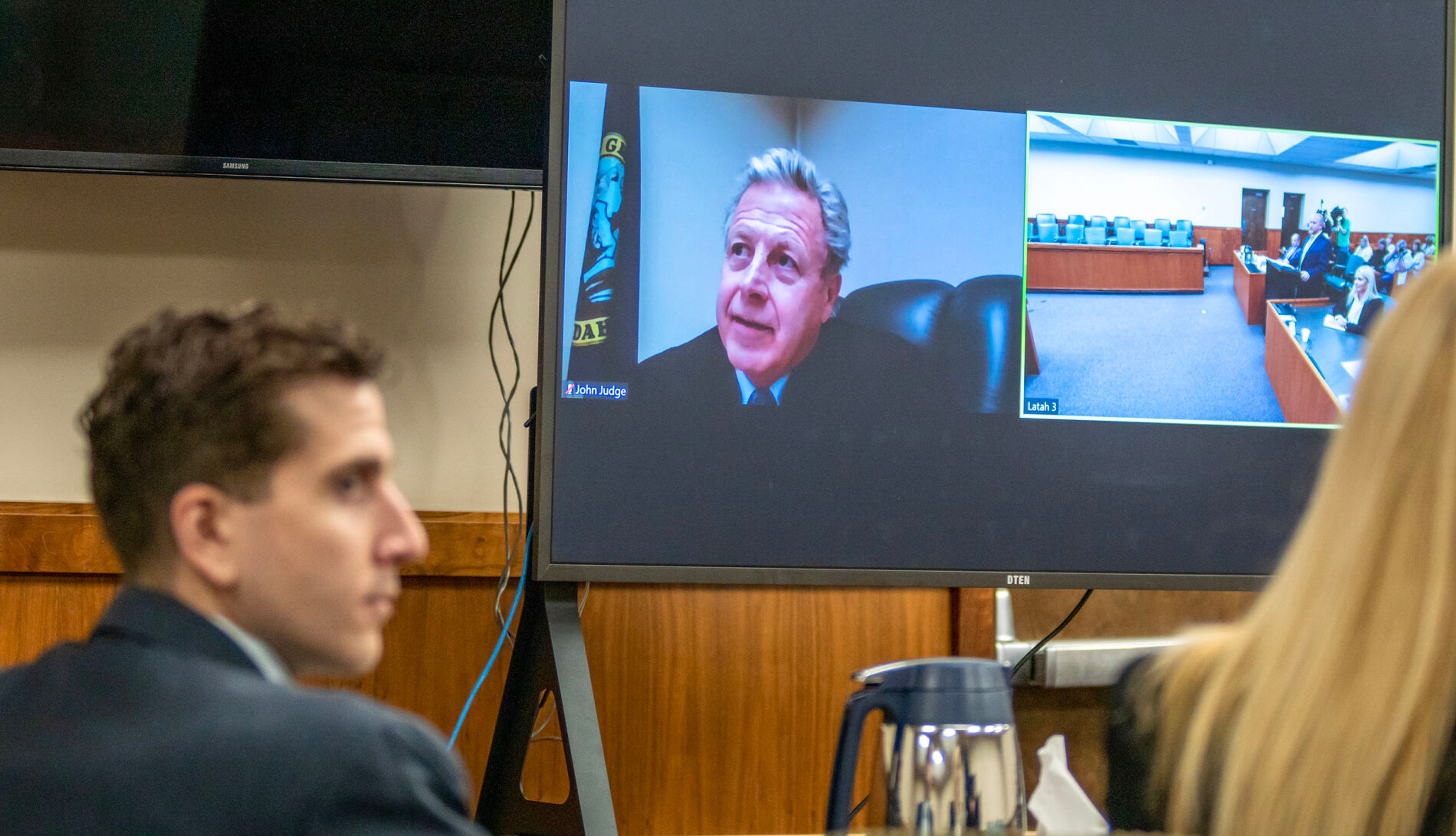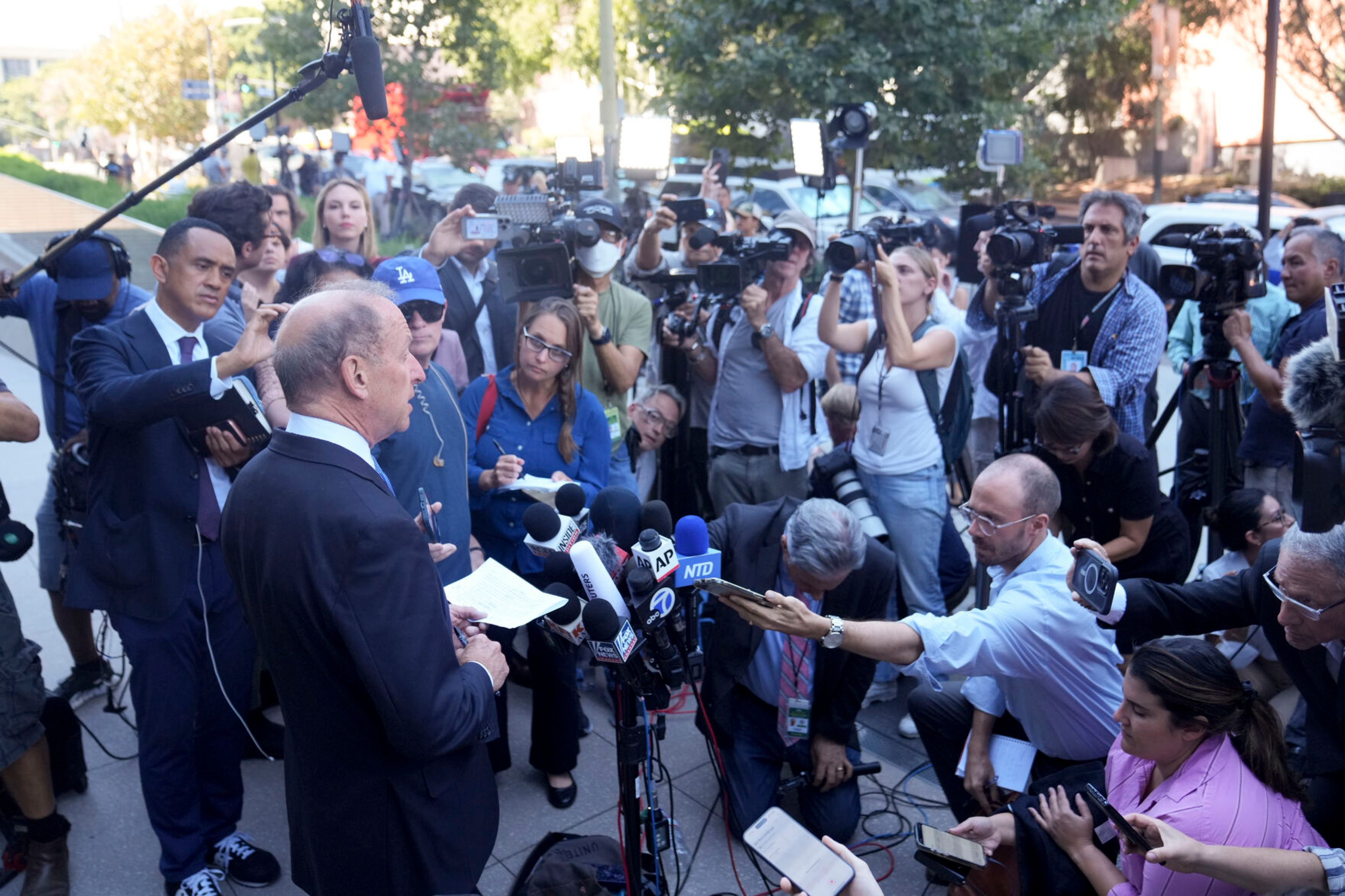You’d have to look far and wide to find a more monstrous case of American injustice than that of Christopher Tapp of Idaho Falls.
Tapp spent 20 years in prison because he confessed to a crime he did not commit and knew nothing about — the 1996 rape and murder of 18-year-old Angie Dodge.
By no means is this the only dark chapter in recent Idaho history. Doctored evidence put Donald Paradis on death row. Charles Irwin Fain received the death sentence based on bad science and a jailhouse snitch. Both were later freed.
But one Christopher Tapp story is one too many.
Then 19 years old in early 1997, Tapp was in the wrong place at the wrong time — someone who had become the focus of an Idaho Falls Police Department that was coming up cold with clues about the Dodge murder. They thought he could finger the guilty party.
So they brought him in for a talk. Among the officers present was a man he trusted, his former high school resource officer and future Idaho Falls Mayor Jared Fuhriman.
With no lawyer in the room to guide him, Tapp’s story evolved.
First he had no idea what happened.
Next, he implicated a friend, Ben Hobbs — who was at the time the IFPD’s leading suspect in the case.
Then Tapp conceded he was outside Dodge’s apartment when the murder occurred.
Eventually, Tapp confessed to holding Dodge down while she was raped and murdered.
Finally, Tapp said he also mutilated Dodge’s corpse by slashing her, thereby assuring the murderer that as an accomplice, he would not “rat” on him.
Keep in mind there was no evidence linking Tapp to the crime. His DNA was not at the scene. Police had to point out to him where Dodge lived.
So how did this happen?
From the minute Tapp walked into police headquarters, he was threatened. Cops told him that since he was dating a 17-year-old girl, they already had him for statutory rape.
They offered him immunity for naming others but as DNA analysis cleared those suspects, the deal was yanked
Cops fed him details of the crime — even to the point of using a polygraph test to steer him along the way. Boise State University polygraph expert Charles Honts called the tactic a “psychological rubber hose.”
They told him he had repressed memories of the night.
They threatened him with the gas chamber — even though Idaho does not use a gas chamber.
Steven A. Drizin of Northwestern University School of Law called it “the most contaminated and least corroborated” confession he’d seen in his 15 years at freeing the wrongfully convicted.
At Tapp’s trial, his lawyers sought to suppress the confession; the courts refused.
The jury didn’t buy his story. So off to a 30-years-to-life prison sentence Tapp went.
Only after an avalanche of attention was thrown on this case — national television news coverage, the Idaho Innocence Project, the New York Innocence Project, the Center on Wrongful Convictions, Judges for Justice and the tenacious insistence by Carol Dodge that the taped interrogation of Tapp proved the cops had nailed the wrong man and let her daughter’s murderer roam free — did Tapp secure his freedom two years ago.
But it came at a price: The rape conviction — and the threat of registering as a sex offender — disappeared. But he was compelled to drop his challenge to the murder conviction.
Last week, the other piece of the puzzle fell into place. A new generation of IFPD leadership secured the services of innovative DNA forensic investigators — which led them to Brian Leigh Dripps.
A 53-year-old Caldwell man, Dripps lived across the street from Dodge in 1996 and his DNA matched that found at the crime scene.
Most importantly from Tapp’s perspective, Dripps reportedly has said he acted alone. Bonneville County Prosecutor Danny Clark’s next step should be to exonerate Tapp.
But what about all the other Christopher Tapps?
A quarter of the exonerations secured by DNA evidence involved false confessions.
How is that possible?
Cops get tunnel vision. Once the IFPD went down the Tapp rabbit hole, it seemingly could not escape.
Prosecutors defer to law enforcement and, as elected officials, are focused on getting convictions.
No judge was ever denied re-election for issuing too harsh a sentence.
Juries hear the word “confession” and they convict.
And a public exposed to 45 years of “Dirty Harry” movies still thinks it’s living in an era of lenient courts where legal technicalities free the guilty to prey on the innocent.
If nothing else, the Tapp case tells you a confession and a corpse is simply not good enough.
Require law enforcement and prosecutors to obtain substantial corroboration: Can the defendant produce independent knowledge of the crime such as locating the murder weapon? Does DNA evidence put him at the scene?
Subject that evidence to a screening by a pretrial reliability hearing.
No independent corroboration, no prosecution.
Tapp benefited from the fact that others could review his videotaped interrogation. So make certain that all such interviews are recorded and maintained for future examination.
We must do better than this, but we won’t unless forced to.
Nobody should ever again be convicted solely on the basis of a confession. If it means changing the law to guarantee that, then so be it. —M.T.







